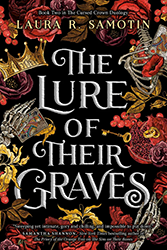King Solomon and the Golden Fish brews 54 oral folktales gathered by Koén-Sarano from Sephardic “informants” with generous notes by Haboucha which accompany each story. The result is both scholarly and earthy. While Haboucha does point out threads common to other folk literature in a 27-page motif index, folklorists will be delighted by the range of tales little known outside of the Judeo-Spanish world. Uniquely Sephardic images include a hero who must walk with chickpeas in his boots. Supernatural tales, romantic tales, and stories about cleverness, fate, the Prophet Elijah, the trickster Djohá, and numbskulls from the imaginary town of Makeda reflect the ethical — and often patriarchal— mores of Sephardic culture, including bawdy folk-humor. Avine growing from the bones of a murdered man produces grapes that spurt blood; a princess who has laughed at a hunchback becomes blind; and a snake wraps itself around the mother-in-law who has kept the bride’s mother from attending her daughter’s wedding.
In commentary and footnotes, Haboucha explains Jewish customs, discusses symbolism and the intent of story types within Sephardic society and points to parallel versions of story themes. Twelve of the Djohá selections appeared in Koén-Sarano’s first collection, but are newly translated here from Judeo-Spanish in a very different style. Seeking to preserve oral origins of the tales, Haboucha retains narrator asides, ungrammatical tense shifts, and a peppering of vocabulary from 16 languages, reflective of the lands where Spanish Jews lived before their dispersion through Europe and the Middle East. This work opens with foreword, introduction, preamble, and preface.
Sharon Elswit, author of The Jewish Story Finder and a school librarian for forty years in NYC, now resides in San Francisco, where she shares tales aloud in a local JCC preschool and volunteers with 826 Valencia to help students write their own stories and poems.





